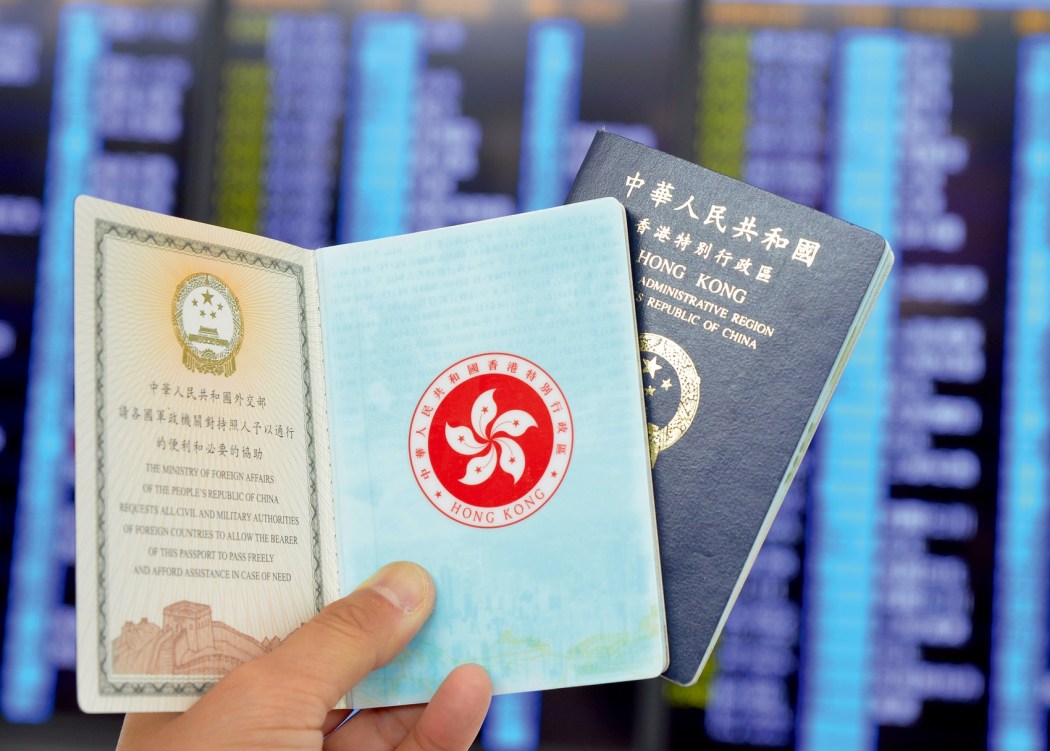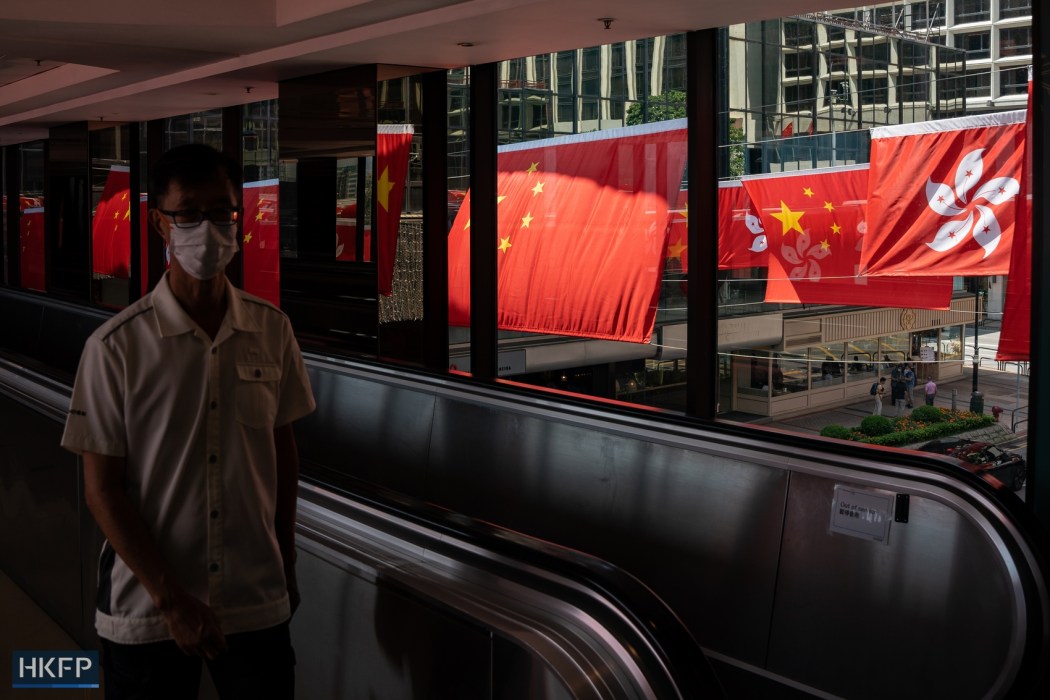The Hong Kong government may cancel the Hong Kong passports of security law “absconders” and ban providing them with financial support, a newly unveiled draft bill under Article 23 of the city’s mini-constitution has said.

According to the full bill released on Friday morning, the secretary for security may declare an individual charged under the proposed security legislation as an absconder if they have been issued an arrest warrant for at least six months, they have not appeared in front of a magistrate, and if the security chief “reasonably believes” the person is not in Hong Kong.
The declaration would enable the authorities in Hong Kong to impose a series of restrictions on the wanted individual, including annulling their Hong Kong passport and prohibiting anyone from providing them with funds or other financial assets, or handling their economic resources.
Funds would cover gold coin, cash, cheques, stocks and shares, deposits with financial institutions and dividends from property.
Those who breach the ban on provision of funds to an absconder could face up to seven years behind bars.
The draft law stated that reasonable steps should be taken to inform the wanted person about the warrant before the security minister made such a declaration.
Under the proposed law, the authorities are also seeking to bar anyone from leasing a property to or from an absconder, and establishing or investing in a joint venture or partnership with a absconder. Violators could face a maximum penalty of seven years behind bars.
An absconder's professional qualifications would be suspended, while any business or employment permit or registration would be temporarily halted as well. If the absconder was a director of a company, they would be removed from office temporarily.

The Legislative Council convened a special meeting on Friday morning for the first reading of the Safeguarding National Security Bill – known locally as Article 23.
Article 23 of the Basic Law stipulates that the government shall enact laws on its own to prohibit acts of treason, secession, sedition and subversion against Beijing. Its legislation failed in 2003 following mass protests and it remained taboo until after the onset of the separate, Beijing-imposed security law in 2020. Pro-democracy advocates fear it could have a negative effect on civil liberties but the authorities say there is a constitutional duty to ratify it.
The introduction of the bill came just nine days after the end of a one-month public consultation period, which prompted more than 13,000 submissions, 97 per cent of which expressed support for the new security law, according to the government.
China’s Vice Premier Ding Xuexiang urged a swift enactment of legislation under Article 23 of Hong Kong's mini-constitution on Thursday, as he held talks with the city’s deputies to the National People’s Congress, China’s legislature.
Support HKFP | Policies & Ethics | Error/typo? | Contact Us | Newsletter | Transparency & Annual Report | Apps
Help safeguard press freedom & keep HKFP free for all readers by supporting our team























